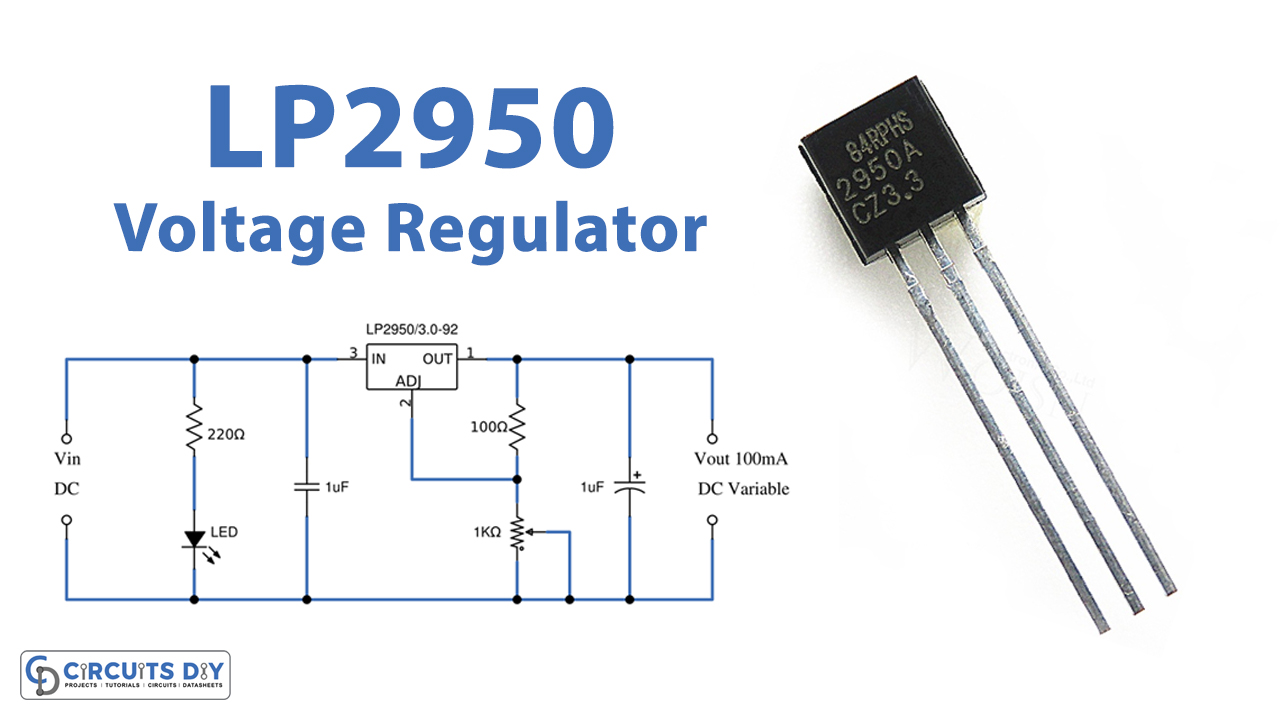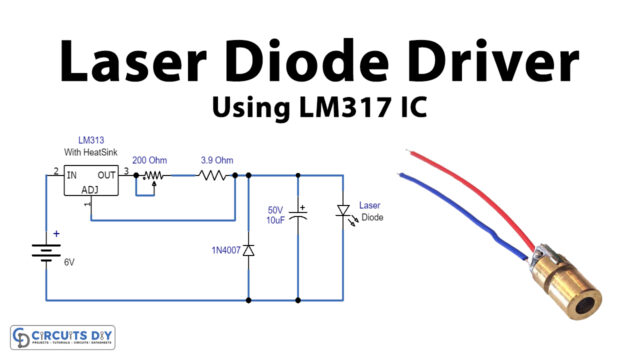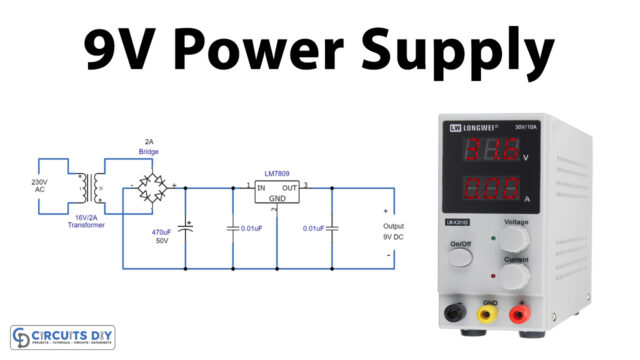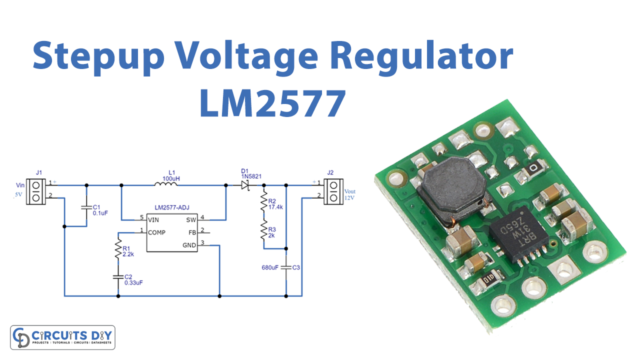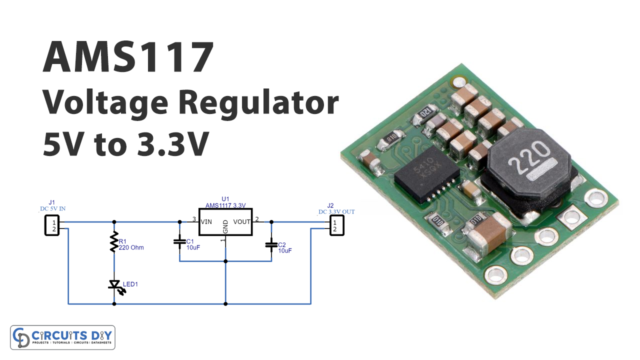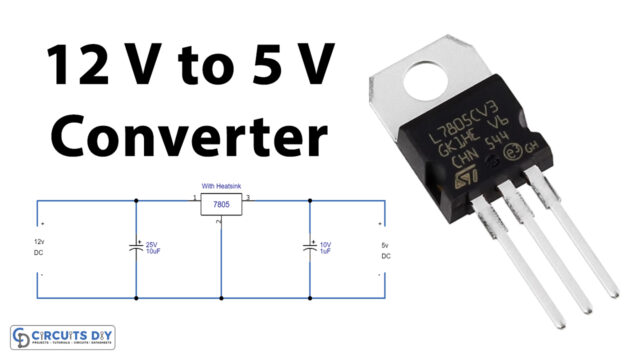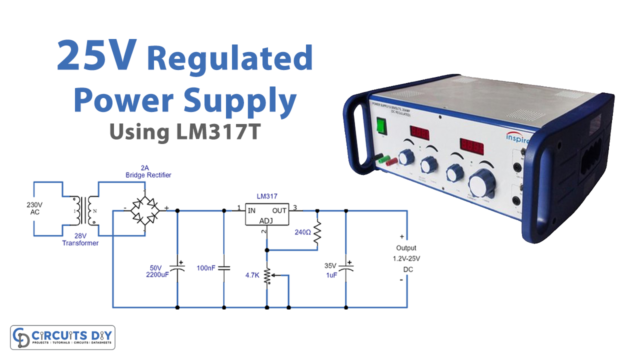In this tutorial, we are going to make an “LP2950 Adjustable Micropower Voltage Regulator Circuit”.
Nowadays voltage regulators for micropower designs are easy to implement, as the LP2950 adjustable micropower voltage regulator circuit provides a regulated output voltage at 100mA output current. A voltage regulator is used for two reasons to regulate or vary the output voltage of the circuit and to keep the output voltage constant at the desired value in spite of variations in the supply voltage or in the load current. The easy-to-use, 3-pin LP2950 is available in fixed output voltages of 5 V, 3.3 V, and 3 V. IC LP2950 is a bipolar, low-dropout voltage regulator that can accommodate a wide range of input voltage range up to 30 Volt, has a rated output current of 100 mA with a low dropout 380 mV and also low quiescent current (75 μA),
This three-pin micropower voltage regulator provides good load regulation at low output current. The careful design of the LP2950 has minimized all contributions to the error budget. This includes a tight initial tolerance (0.5% typical), extremely good load and line regulation (0.05% typical), and a very low output voltage temperature coefficient, making the part useful as a low-power voltage reference.
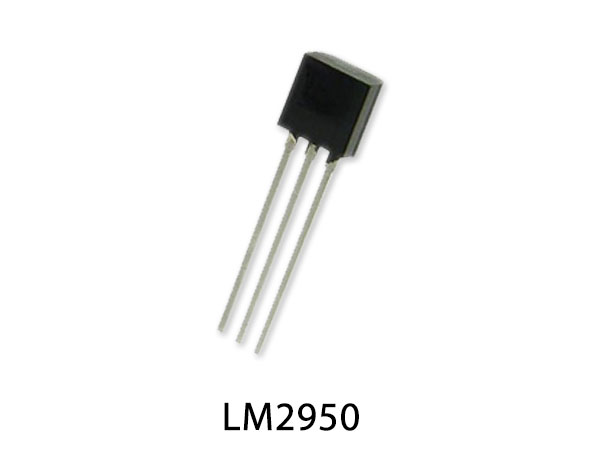
Hardware Components
The following components are required to make an Adjustable Voltage Regulator Circuit
| S.no | Component | Value | Qty |
|---|---|---|---|
| 1. | IC | LP2950 | 1 |
| 2. | Capacitor | 1µF | 2 |
| 3. | Resistor | 220Ω, 100Ω | 1,1 |
| 4. | Variable Resistor | 1KΩ | 1 |
| 5. | LED | – | 1 |
| 6. | Connecting Wires | – | 1 |
| 7. | Power Supply | – | 1 |
LP2950 Pinout
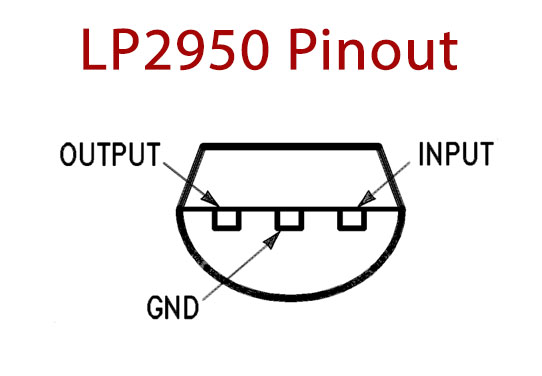
For a detailed description of pinout, dimension features, and specifications download the datasheet of LP2950
Adjustable Voltage Regulator Circuit
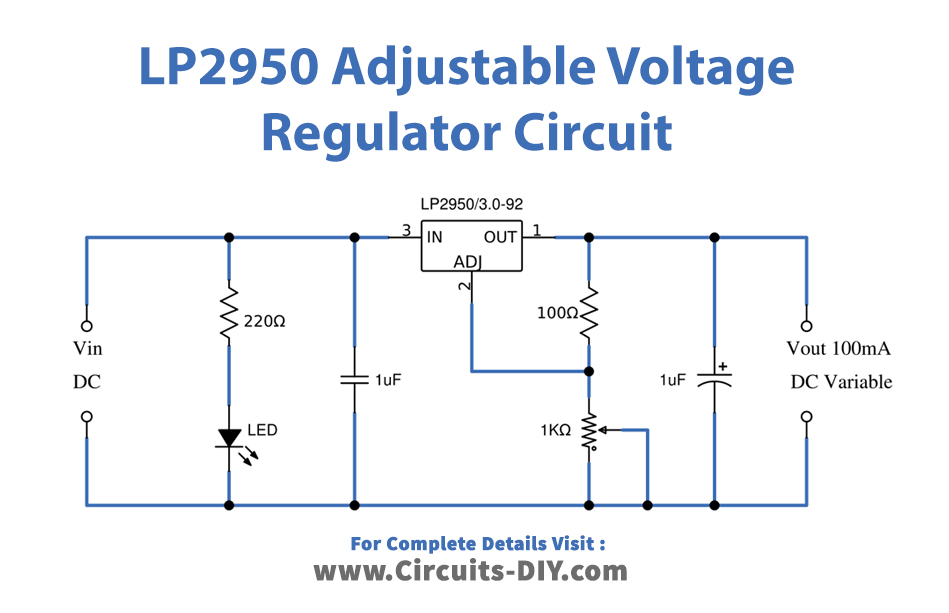
Working Explanation
The LP2950-N is available in the surface-mount TO252 package and in the popular 3-pin TO-92 package for pin compatibility with older 5-V regulators, as it comes in fixed output voltage specification for which we designed two types of the circuit, fixed micropower voltage regulator circuit, and adjustable micropower voltage regulator. The LP2950 has sufficient internal architecture so we only require a few passive components for circuit implementation.
First, we will design a fixed regulator. In the fixed regulator, we use two capacitors C1 and C2 which perform filter operation, and one LED which indicates input voltage presence. For adjustable regulator Ground pin of LP2950 is connected between the voltage divider resistor setup, here the RV1 variable resistor, and R2 are fixed. Now by changing the value of the RV1 resistor we can control the ground supply flow to the GND pin of LP2950 and we can change the output voltage.
Applications
These are ideally suited for battery-powered computer, consumer, and industrial equipment where an extension of useful battery life is desirable.

